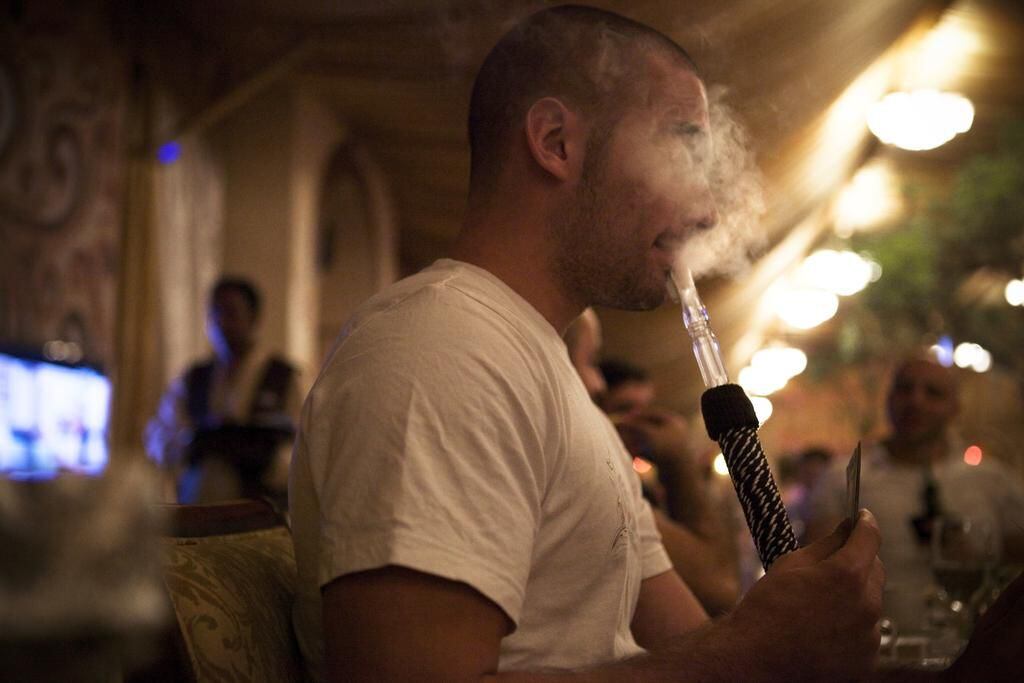When the doctors at Thumbay University Hospital diagnosed the reasons behind Tarek’s illness, it was concluded that his parents frequently smoked shisha inside, especially in the living room where the child spent a large portion of his daytime hours.
He was prescribed a short course of inhalation corticosteroids, and a bronchodilator for acute asthma attacks. The parents were advised to cease smoking indoors, improve ventilation by keeping windows open, and use air purifiers to enhance indoor air quality.
Tarek’s respiratory symptoms and lung function significantly improved at his one-month follow-up visit.
Tobacco smoke is lethal, containing over 4,000 toxic chemicals that pose significant health risks to non-smokers exposed to it.
Despite public awareness campaigns, the dangers of passive smoking remain a pressing public health issue.
Recent studies have highlighted the severe health implications for those subjected to second-hand smoke, including increased risks of coronary artery disease, lung cancer, asthma, and respiratory diseases in children.
Doctors said that second-hand smoke (SHS) poses a number of health risks and has a major influence on non-smokers.
One of the main issues is the higher chance of cardiovascular illnesses, such as heart attacks and strokes, as a result of blood vessel fat deposits and artery stiffening. Additionally linked to increasing clotting and coagulation of the blood, exposure to SHS increases the incidence of heart-related disorders.
“Exposure to second-hand smoke increases the risk of lung cancer and chronic lung conditions such asthma, chronic bronchitis, and emphysema in non-smokers. Furthermore, there is evidence suggesting that SHS exposure may contribute to the development of other cancers, including breast cancer, lymphoma, and leukaemia,” said Dr Mohamed Saifeldin Abdelrahaman Mohamed, specialist pulmonologist, at Thumbay University Hospital.
“Beyond physical health, SHS can also affect mental and emotional well-being. Some studies indicate a link between SHS exposure and symptoms of depression too,” he added.
Different effect on youth and adults
Passive smoking impacts different age groups in various ways, say doctors.
Doctors said that children are more susceptible to respiratory infections, ear infections, and asthma triggers. “It can also affect their lung development,” said Dr Muhammed Aslam, a specialist pulmonologist, at International Modern Hospital Dubai.
“In adults, there would be an increased risk of heart disease, stroke, and lung cancer. Respiratory issues such as chronic obstructive pulmonary disease (COPD) can also be exacerbated. In the elderly, there would be higher likelihood of cardiovascular diseases, respiratory problems, and exacerbation of existing health conditions due to a generally weaker immune system,” added Dr Aslam.
However, pregnant women are more affected by second-hand smoke, according to Dr Hassan Razein, specialist pulmonologist, at Zulekha Hospital Dubai.
“Pregnant women exposed to second-hand smoke have a higher risk of premature birth, low birth weight, and developmental issues in their babies,” said Dr Razein.
Symptoms of being exposed
According to doctors, the early signs of being exposed to second-hand smoke are eye irritation, respiratory issues, and headaches.
“Redness, itching, and watering of the eyes, coughing, sore throat, and shortness of breath, and headaches is often due to exposure to nicotine and other chemicals,” said Dr Aslam.
However, the long-term effects affect cardiovascular health, said doctors.
“Changes in blood clotting and increased plaque buildup in arteries and hypertension due to prolonged exposure, can lead to chronic high blood pressure, which can increase the risk of heart attack and stroke,” added Dr Aslam.
Preventive measures
Doctors say that it is crucial to stay away from certain places where smoking is common.
“This can include choosing smoke-free restaurants, bars, and hotels, and advocating for smoke-free policies in workplaces and public spaces. Maintaining a smoke-free atmosphere at home is essential. It is best to urge smokers in the home to smoke outside, away from doors and windows,” said Dr Abdelrahaman.
“As parents, it is imperative that you make sure your kids aren’t around smoking, whether it is in the house, at friends, or family member’s houses. Educating children about the dangers of second-hand smoke can also empower them to avoid it,” he added.
Doctors added that the use of air purifiers helps lessen indoor pollution, but they cannot replace a smoke-free atmosphere. “Making sure there is enough ventilation can also be helpful, however, it won’t totally reduce the hazards related to SHS,” Dr Abdelrahaman added.


